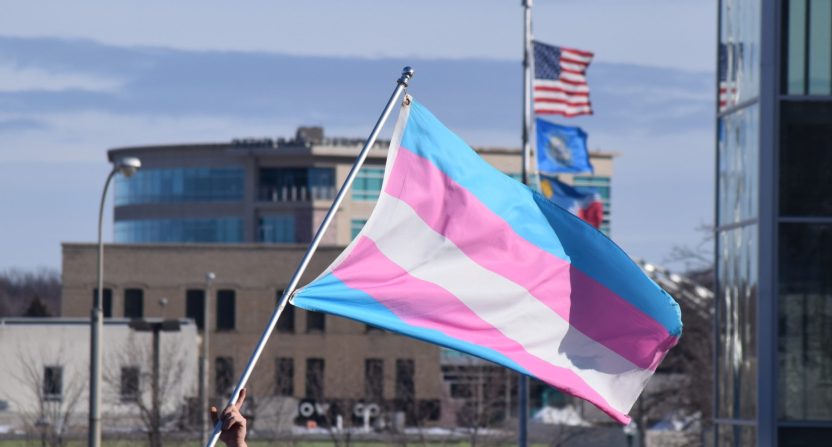In every debate about transgender athletes, opponents of athletes who were assigned male at birth competing against women always cite their competitive advantage.
In some sports, such as softball, volleyball, and basketball, those advantages are hard to quantify. In other sports, however, the difference between women and transgender people who were assigned male at birth stands out in the raw numbers.
That’s the case this week in Ireland as a biological male who now identifies as a woman is absolutely dominating an ultra-distance cycling competition. Cara Dixon, who formerly competed as Cameron Dixon, has ridden 2,199 kilometers in the 2,500km TransAtlanticWay event.
That puts Dixon an astounding 359 km (about 223 miles) ahead of the next closest competitor. For some perspective, second through fifth place in the women’s category is separated by only 48km.
The topic of transgender athletes has sparked intense debate the past couple of years, with the issue blurring traditional political battle lines. For example, tennis legend Martina Navratilova, an open lesbian and longtime icon of the LGBTQ community, is a staunch opponent of biological men competing against women.
A recent Gallup poll found attitudes toward transgender athletes have changed, The poll found that 69% of Americans think transgender athletes should be required to play for teams corresponding to the gender they were assigned at birth, compared to 62% who felt that way in 2021.
Sports fans who came across the cycling event’s results weighed in on Twitter with familiar arguments.
I’m always shocked that females don’t raise their middlefinger to the organizers and quit….
— Pythia, the Oracle (@PythiaAtDelphi) June 13, 2023
Please read about the intimidation and threats targeting women who complain. They risk having their sponsoring and careers ended.
— Bev Jackson (@BevJacksonAuth) June 13, 2023
😧 Can the riders organise and act together? Collective actions are harder to target than individuals. Maybe @Martina, @PaulaYScanlan & Arensman have the profile & charisma to drive collective organised action? Get female players to join a group, then organise and strike?
— Rabbit Redford (@RabbitRedford) June 13, 2023
Say goodbye to women’s sports.
— William Mycroft Buckmaster (@MycroftWm) June 13, 2023
The women should just pull into the next pub they see and drink the rest of the day.
— Figgy Biscuits (@FiggyBiscuits) June 12, 2023
Why do these women athlete accept it? There are many ways to protest. If they stay silent this will continue.
— Emma (@emma_chemist2) June 12, 2023
By continuing to compete against him, they are enabling the problem.
— N$ (@Sosa530) June 13, 2023







